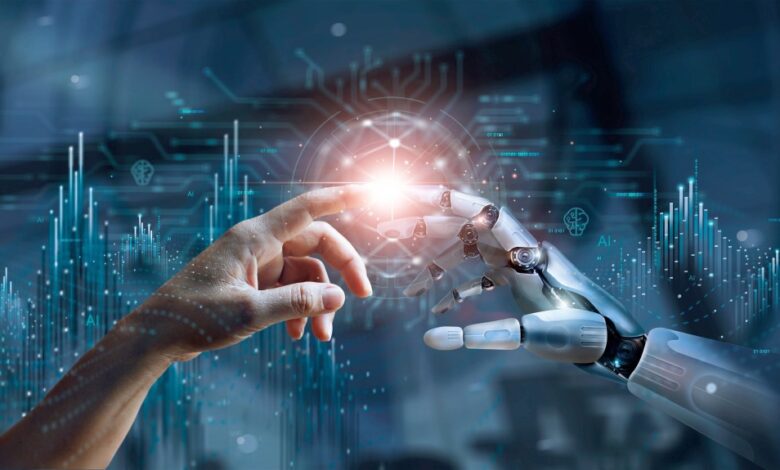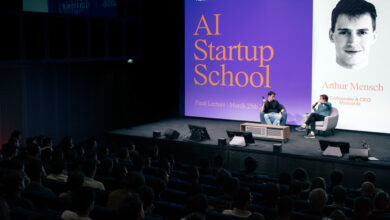Artificial intelligence charm is obviously evil

Human civilization is about 6,000 years old. The internet is about 40 years old and it’s already chewing up human civilization and human nature and spewing them back out.
Maybe electricity, and everything that inevitably followed, was a mistake, letting information move at an accelerating pace that people aren’t made to handle.
A decade ago, websites making you prove you were a human before proceeding seemed funny, or just annoying.
That was before anyone could clone your voice from a short sample of it, and then call your bank as you.
Before a friend started sending me “his” AI-generated songs that sound like lost radio hits. He’s not performing or writing the words or the music but providing cues to an artificial intelligence, then tweaking its results to, for instance, “make it sound more yacht rock.”
It turns out that passing those annoying CAPTCHAS, or Completely Automated Public Turing Test To Tell Computers and Humans Apart, was providing computers with the data to pass them too.
The companies that made vast fortunes from the internet are spending unfathomable sums to move faster and break more things, starting with the World Wide Web and maybe also humanity in the process.
The ugly end result of replacing news results, and everything else, with summaries generated by AI seems painfully obvious to everyone except the geniuses at Google now doing just that.
The advertising giant wants to keep collecting your data instead of having you click through to nydailynews.com or any other website it doesn’t make money from.
Forget about “don’t be evil.” The mantra now is “Let Google do the Googling for you.”
What fresh hell is this?
Forget about finding anything anywhere else. The map wants to be the territory.
Don’t think too much about how exactly Google will keep Googling for you as a vomitous effusion of artificially generated information salts the web, and as as the search engine leeches away what remains of the money that news operations used to take in to, you know, pay people to report the news.
No wonder Google retired its “don’t be evil” slogan on its way to becoming a $2 trillion-and-change behemoth and renaming itself Alphabet, all the better to signal the vastness of its ambitions while also making its own name that much more difficult to search.
As my colleague Maria Bustillos put it at Flaming Hydra, the parasite kills the host.
OpenAI, the Microsoft-backed early leader in the field, just pulled the plug on the unit intended to make sure its sometimes uncanny technological product, which takes obscene and insane amounts of capital and electricity to generate results that let it monetize the collective output of humanity to this point, doesn’t pose a long-term threat to the human race.
The company is also “exploring whether we can responsibly provide the ability to generate NSFW content in age-appropriate contexts.”
Translation: They want to cash in on and warp people’s sexual desires by stealing people’s bodies and voices, without their consent and remixed so that no actual people need to get paid.
It’s end-times stuff, happening in real time right now.
It’s not science fiction: AI is automatically writing up police reports from officers’ body cams.
Despite its grandiose name, AI isn’t intelligence at all but a math game anticipating what comes next: autocorrect on steroids. Given enough data and processing power, though, that may prove a difference without much distinction.
AI is already potent enough to displace and drain if not humans’ collective creativity — and it may well do that — then certainly the economic utility of our creativity.
“Generative A.I. art is vampirical, feasting on past generations of artwork even as it sucks the lifeblood from living artists,” the artist and writer Molly Crabapple warned in an open letter way back in 2023.
“AI-art generators are trained on enormous datasets, containing millions upon millions of copyrighted images, harvested without their creator’s knowledge, let alone compensation or consent. This is effectively the greatest art heist in history. Perpetrated by respectable-seeming corporate entities backed by Silicon Valley venture capital. It’s daylight robbery.”
We’re well beyond art in the age of mechanical reproduction, and in a weird new age of art in the age of algorithmic origination.
But the tech people and investors looking at huge payoffs now figure someone else will deal with the risks of this brave new world. Or not.
They’ll keep eating our seed corn and relieving themselves in our water so long as it’s paying off.
Have any of these people ever read a book, or watched a movie? This doesn’t end well.
Siegel (harrysiegel@gmail.com) is an editor at The City, a host of the FAQ NYC podcast and a columnist for the Daily News.



